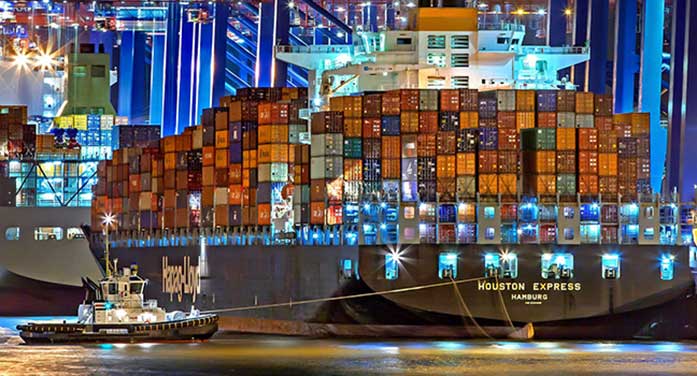 Carbon taxes at borders are becoming a popular idea among some countries and regions of the world. It’s an idea destined to damage the global economy.
Carbon taxes at borders are becoming a popular idea among some countries and regions of the world. It’s an idea destined to damage the global economy.
For example, the European Commission, the European Union executive institution, wants environmental tariffs “on imports from countries with less stringent climate-protection rules.”
Democrats in the United States Senate proposed a similar measure. As reported by the New York Times, “Democratic lawmakers proposed to raise as much as $16 billion annually by imposing a tax on imports from China and other countries that are not significantly reducing the planet-warming pollution that they produce.”
In Canada, this option is also on the minds of some politicians. The federal government is examining copying the European policy. The measure is supported by the United Kingdom Prime Minister Boris Johnson, who wants a group of seven countries to discuss imposing carbon taxes at their borders on imports from developing countries.
Even if protecting the environment is a reasonable cause, this type of taxation shows problems mainly because ecology seems to be a pretext to more political policy.
 In recent years, free trade has been criticized a great deal and protectionism has gained popularity. The interest in European sovereignty expressed by President Emmanuel Macron’s France, and the “America First” of former President Donald Trump, followed by the “Buy American” of President Joe Biden, show the intent to impose trade barriers and more regulations.
In recent years, free trade has been criticized a great deal and protectionism has gained popularity. The interest in European sovereignty expressed by President Emmanuel Macron’s France, and the “America First” of former President Donald Trump, followed by the “Buy American” of President Joe Biden, show the intent to impose trade barriers and more regulations.
Carbon border taxes follow this trend. After claiming to protect workers, the discourse maintains that it’s intended to protect the environment. It will help neither.
These taxes will mainly impact emerging and Third World economies. They’re the countries with fewer regulations related to pollution and carbon emissions than established economies. This tax idea will also hurt countries with primary economies without clean energy technology.
The side effects of these taxes, like economic difficulties and the weakening of some industrial sectors, would mainly be borne by non-Western countries.
This taxation may also be a sanction against revisionist powers like Russia or China. It’s not a surprise that some trading partners of the EU, like Russia, oppose the policy. As reported by the Financial Times: “Russia calculated that it stood to lose $7.6 billion from it, making Moscow potentially one of the biggest losers from the measures.”
Considering the tensions between the EU and Russia, the weakening of the Russian economy wouldn’t cause European politicians any distress.
But even in Western countries, this tax plan will impact parts of the economy, especially the industrial sectors. Tariffs will hurt workers, particularly those in energy and industrial areas. A tax at the border would raise the cost of production, make these industries less viable.
Some politicians fear this tax could recreate a “rust belt”: cities or states/provinces that have lost their primary economic sector, leading to economic crises. Industries that rely on imports will be heavily penalized. Trump tariffs penalized the rust belt. This new trade war could have the same impact.
The attack on industry carries a high risk for Canada, considering that 28 per cent of its gross domestic product came from industry in 2017. In comparison, this share of the American economy is 19 per cent GDP.
Canada can’t allow a vital part of its economy to be under pressure.
And if production costs rise, the price of the products will also increase. So it will ultimately be the consumer who pays more. Inflation is growing. This isn’t a good time to introduce new taxation that makes products more expensive.
Carbon border taxes won’t save the climate but they will create trouble for the world economy.
Alexandre Massaux is a research associate at the Frontier Centre for Public Policy.
Alexandre is a Troy Media Thought Leader. For interview requests, click here.
The views, opinions and positions expressed by columnists and contributors are the authors’ alone. They do not inherently or expressly reflect the views, opinions and/or positions of our publication.
© Troy Media
Troy Media is an editorial content provider to media outlets and its own hosted community news outlets across Canada.

